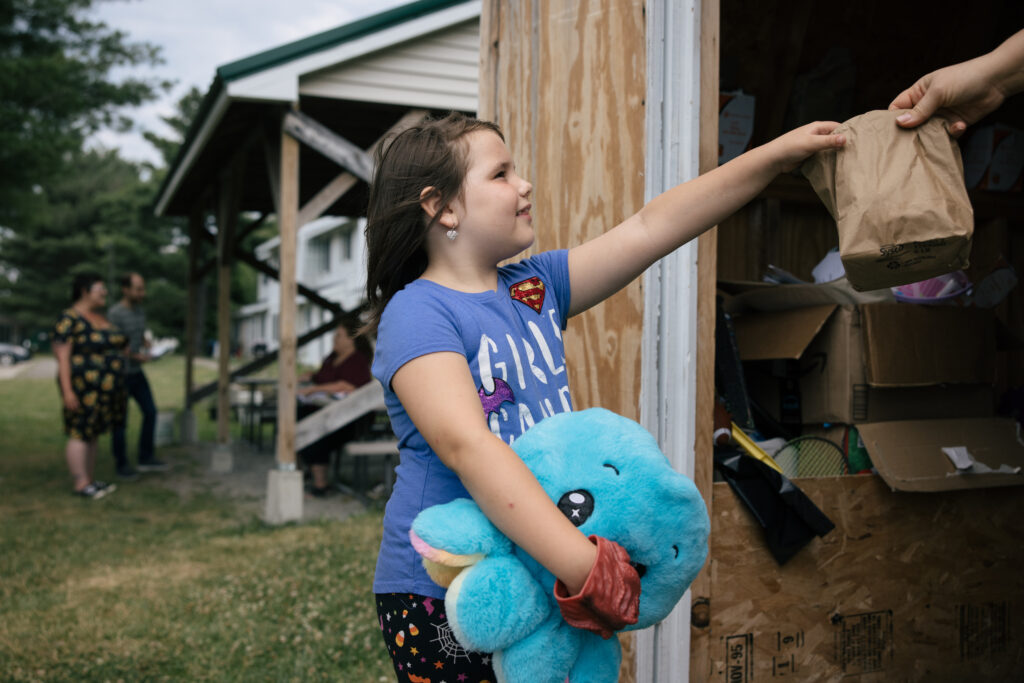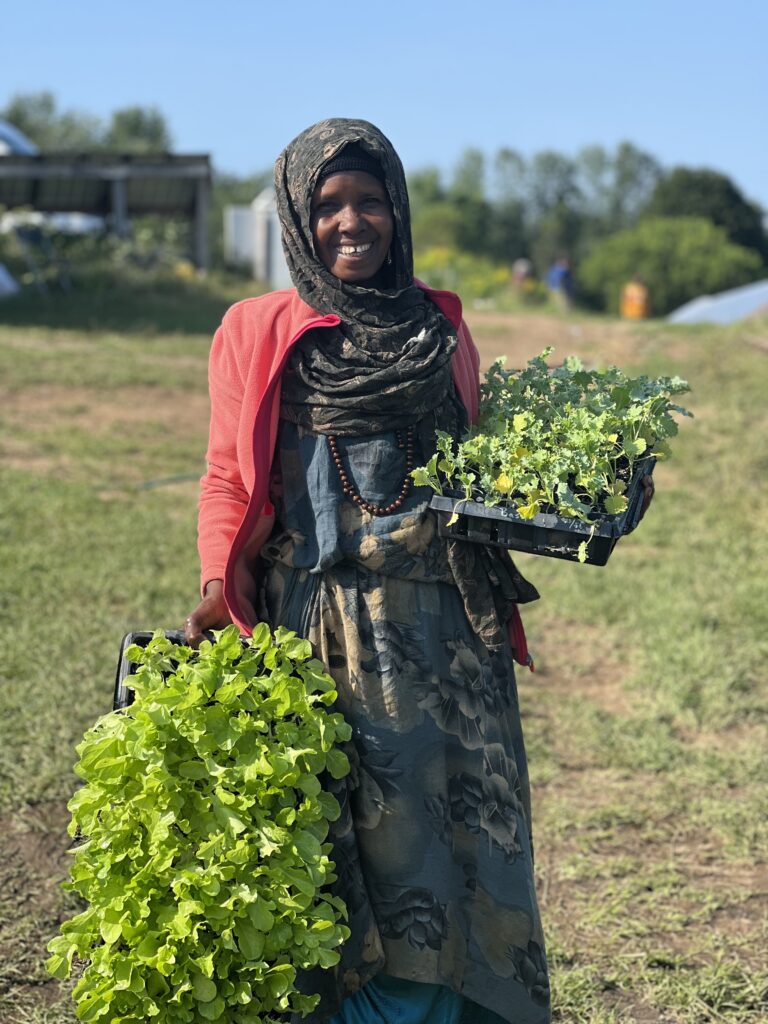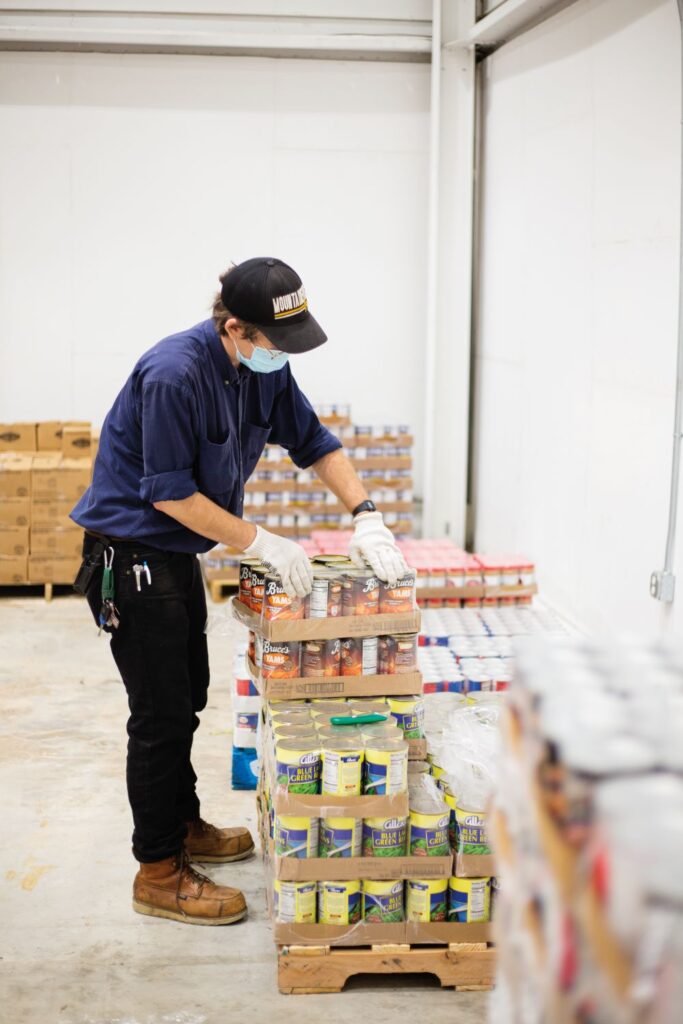
Good Shepherd Food Bank's Youth and Family Initiatives Pogrom focuses on meeting the nutritional needs of children when they are most likely to experience hunger: after school, weekends and summer vacation. Alyssa Shukar/Good Shepherd Food Bank photo
Collaboration. No single strategy, person or organization can make lasting change alone.
Collaboration is one of the Maine Community Foundation's values and a key to achieving its mission to build a better Maine. Over the past 40 years, MaineCF has supported thousands of nonprofit organizations and projects large and small that are coordinating with others to make their dollars go further and make a bigger difference for the people they serve.

The Food Bank partners with 95 farms throughout the state for its Mainers Feeding Mainers program. Local farmers grow and harvest crops for the Food Bank, and the fresh produce is delivered to hunger-relief partners across Maine. GSFB photo
The Good Shepherd Food Bank started in 1981 in a Lewiston garage with the goal of helping neighbors experiencing hunger. Today, the Food Bank has grown to occupy two food distribution centers in Auburn and Hampden. It partners with more than 600 hunger-relief organizations throughout the state, 95 Maine farms to provide nutritious food to their communities and offers cooking classes among other programs aimed at s trengthening food security from the ground up.
In addition, the Food Bank has engaged with organizations focused on even larger-scale efforts to address food in security. In 2020, it worked with a coalition led by the organization Full Plates, Full Potential, to successfully advocate for state legislation providing free school lunches for all Maine students.
The Food Bank draws financial resources from publ ic and private funders of all kinds, including MaineCF. "MaineCF has been a significant partner throughout our history;' said Erin Fogg, vice president of development and communications at the Food Bank. MaineCF donor advised funds and grant programs have awarded the Food Bank 403 grants totaling $3.4 million since 1994.

MaineCF donors awarded more than $2 million in grants to increase the cold storage capacity at the
Food Bank's Auburn and Hampden food distribution centers. Good Shepherd Food
Bank photo
Donors with advised funds at MaineCF awarded more than $1 million in grants in 2017 to increase the cold storage capacity in the Food Bank's Hampden food distribution center. During the height of the COVID-19 pandemic, MaineCF awarded the Food Bank more than $75,000 to support Maine people experiencing hunger. Now, the Food Bank is digging deep to identify ways it can help address root causes of hunger in Maine.
Approximately 11 percent of Mainers do not have regular access to enough fo od to thrive and the Food Bank is on a mission to eliminate that gap and address the root causes of food insecurity through advocacy work.
"We know that financial insecurity, lack of housing and many other complex issues are all linked to hunger," said Fogg. "We are also still learning a lot about equity and the impact of systemic inequities on hunger over time."





